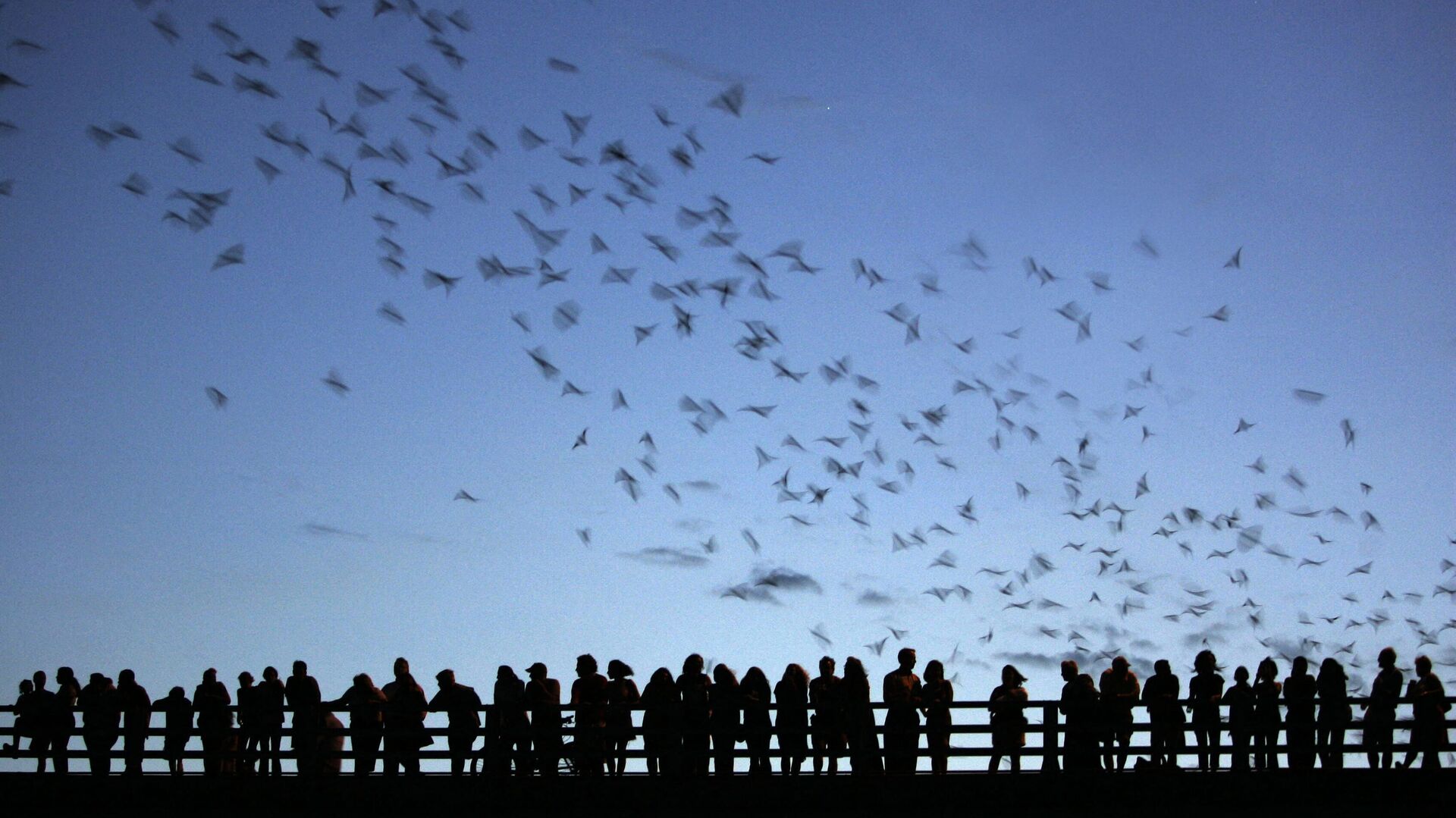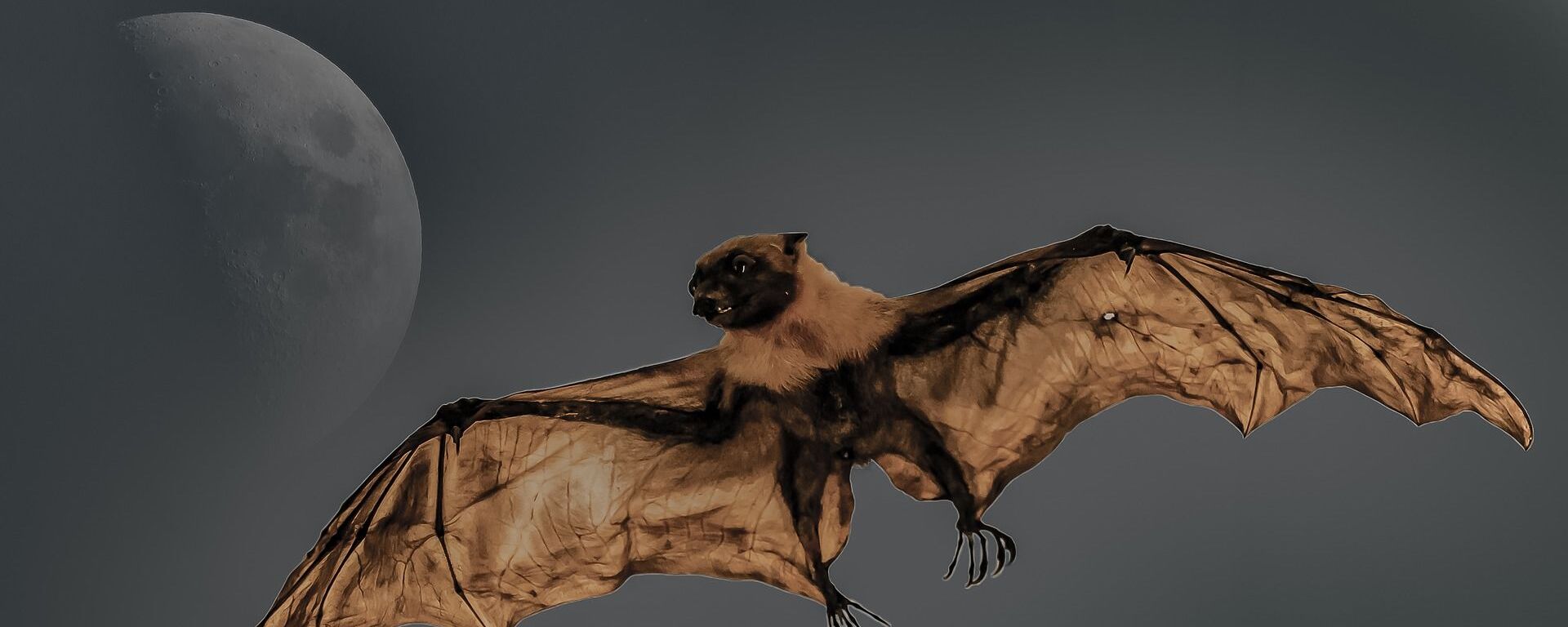https://sputnikglobe.com/20221229/back-from-the-frozen-hundreds-of-wild-bats-released-after-surviving-hypothermic-shock-1105885853.html
Back From the Frozen: Hundreds of Wild Bats Released After Surviving 'Hypothermic Shock'
Back From the Frozen: Hundreds of Wild Bats Released After Surviving 'Hypothermic Shock'
Sputnik International
Hundreds of wild bats were released in Texas after freezing in snowstorm.
2022-12-29T13:46+0000
2022-12-29T13:46+0000
2022-12-29T13:57+0000
science & tech
bats
houston
us
frozen
snowstorm
https://cdn1.img.sputnikglobe.com/img/07e6/0c/1d/1105885138_0:70:3391:1977_1920x0_80_0_0_cb473257fecfc1d0e00c59c54a360b0f.jpg
Some 700 wild Mexican free-tailed bats that had a close brush with death in inclement weather were released in Houston, Texas on December 28.The creatures rejoined their colony living under the city’s Waugh Drive bridge after being offered a week of rehabilitation by the Houston Humane Society and Texas Wildlife Rehabilitation Coalition. Crowds thronged the bridge to watch the release.As the recent snowstorm battered parts of the US over the Christmas weekend, bringing plummeting temperatures along with vast amounts of snow, a slew of bats, which have little body fat and cannot survive in freezing conditions, fell to the ground in Texas.To all appearances, they had frozen to death. However, with help from rescuers, many only needed some heat and hydration “to quick start their systems,” according to the Houston Humane Society. Overall, more than 1,500 frozen bats were retrieved on December 22, with around 115 perishing.According to Mary Warwick, director at the Houston Humane Society-Texas Wildlife Rehabilitation Coalition, about 60 bats were still being kept in an incubator, with the rest placed in dog kennels to keep them cool and, accordingly, less hungry.
https://sputnikglobe.com/20220512/buzz-no-kill-bats-use-acoustic-mimicry-to-deter-predators-scientists-say-1095471580.html
houston
Sputnik International
feedback@sputniknews.com
+74956456601
MIA „Rossiya Segodnya“
2022
News
en_EN
Sputnik International
feedback@sputniknews.com
+74956456601
MIA „Rossiya Segodnya“
Sputnik International
feedback@sputniknews.com
+74956456601
MIA „Rossiya Segodnya“
bats, houston, resued bats, frozen bats, bats rescued and released, back from the frozen, wild bats released after hypothermic shock, "once-in-a-century" snowstorm
bats, houston, resued bats, frozen bats, bats rescued and released, back from the frozen, wild bats released after hypothermic shock, "once-in-a-century" snowstorm
Back From the Frozen: Hundreds of Wild Bats Released After Surviving 'Hypothermic Shock'
13:46 GMT 29.12.2022 (Updated: 13:57 GMT 29.12.2022) Parts of the United States were hit by a ferocious "once-in-a-century" snowstorm ahead of the Christmas holidays, with some animal species also suffering from the frigid temperatures.
Some 700 wild Mexican free-tailed bats that had a close brush with death in
inclement weather were released in Houston, Texas on December 28.The creatures rejoined their colony living under the city’s Waugh Drive bridge after being offered a week of rehabilitation by the Houston Humane Society and Texas Wildlife Rehabilitation Coalition. Crowds thronged the bridge to watch the release.
As the recent
snowstorm battered parts of the US over the Christmas weekend, bringing plummeting temperatures along with vast amounts of snow, a slew of bats, which have little body fat and cannot survive in freezing conditions, fell to the ground in Texas.
To all appearances, they had frozen to death. However, with help from rescuers, many only needed some heat and hydration “to quick start their systems,” according to the Houston Humane Society. Overall, more than 1,500 frozen bats were retrieved on December 22, with around 115 perishing.
According to Mary Warwick, director at the Houston Humane Society-Texas Wildlife Rehabilitation Coalition, about 60 bats were still being kept in an incubator, with the rest placed in dog kennels to keep them cool and, accordingly, less hungry.
“It’s hard to feed bats in care, because they normally eat in flight, so we would have to force-feed 1,544 bats, which is a lot,” Warwick told reporters.



